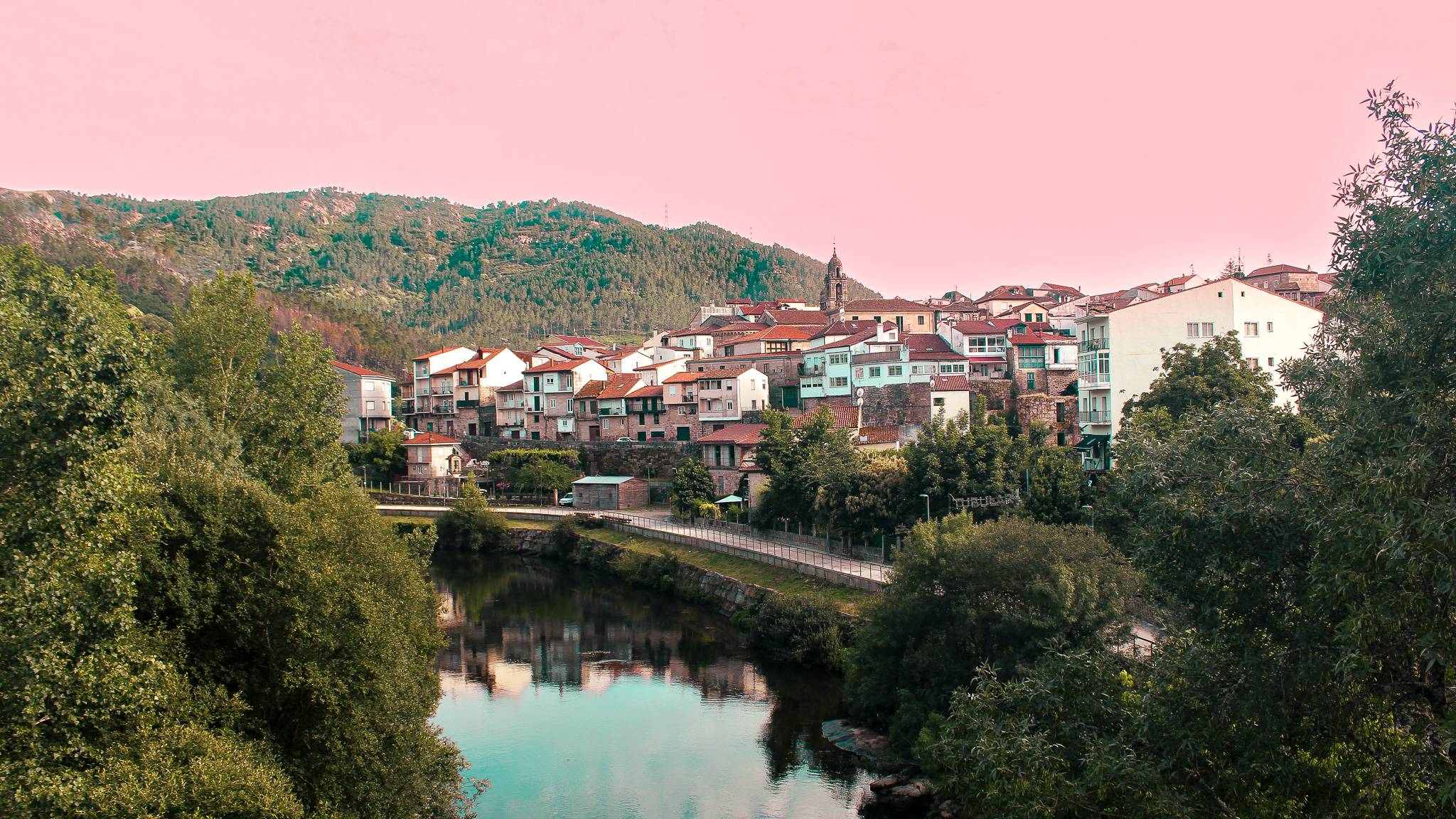Set in a fertile valley alongside the Rio Mino, Ribadavia has, for hundreds of years, produced Ribeiro wines. It seemed a good reason to visit.
What a gem we discovered nestled within its original 11th century walls. The narrow streets of three storey stone terraced houses are dotted with churches, ducal palaces and a Gothic Casa de Inquisicion, linked directly to the Papal Office through as many as five families, whose coasts of arms decorate the sinister building.
The Catholic monarchs Ferdinand and Isobel instituted the Spanish Inquisition in 1478 with the purpose of combating heresy, effectively forcing non-Catholics to convert or flee Spain. Ribadavia’s thriving Jewish community was not immune and despite forming one third of the town’s population, the people were driven away from it or forced to convert to remain within it.

Just a five minute walk away from the much needed shaded ‘area de autocaravanes’, their Barrio Xudeu still preserves its mediaeval layout with long, narrow streets that connect with squares and arcaded corners.
Jewish markets were located on the ground floor of the houses and arcades so that goods, and customers, were sheltered from the strong sunlight and heavy rains of the region.
The quarter has a medieval synagogue built in the 16th century by Jews who continued to practice their faith secretly after being converted to Christianity under duress during the Inquisition. Hidden inside the stone frame of the building’s only east facing window is a cylindrical compartment where worshipers used to conceal their Torah scroll.
It is decorated on the outside with hand crafted Stars of David, which confused us, until we read that they have been recently added by a local renovator and owner of the building: “so that this synagogue, which always operated in secret, would be a secret no more”.
The main income in Ribadavia was the production and trading of a sweet, white vine, Ribeiro. Famous already in the Middle Ages and exported throughout Europe from the 12th century onwards it has a fresh, slightly acidic and fruity character.
In the 1500s a series of ordinances were agreed, making Ribeiro the oldest designated wine in Spain. Nowadays it continues to be produced locally in the Ribeiro Denomination of Origin which covers 3,000 hectares.
On a tapas tour of three bars (the wine portions served are very small) we joined a busy crowd of friends, families and onlookers involving themselves in decorating a terrace of dining tables under a canopy for a birthday. Everyone seemed to exercise their democratic right to advise where balloons, banners and lanterns should be hung.
It was 8pm and the bar owner told us the celebratory dinner would be served at 10pm. It was going to be a long evening of debate and discussion about the correct placement of dirigibles.
Leaving the Old Town through the ruins of its 15th century castle we were caught up in a well-dressed crowd of proud parents and grandparents heading to the outdoor theatre built into the castle’s keep. It seemed to be an awards event for schoolchildren massed on the terraced stone seats facing a stage decorated with giant books.

Ribadavia’s old centre is clearly a well loved and lived in community, home to all generations. Its population is just over 5,000 people.
As I was writing for the blog the next day, Simon spent Saturday morning in the Praza Maior with coffee and his notebook. He writes: “I was the first customer of the day and chose the café opposite the town hall as I wanted to see and hear the chimes from the bell in the 16th century wrought iron belfry.
As it tolled for 11.30, scores of people came swarming into the square from all the surrounding alleyways. Most knew each other and called to the café owners on their way into the town hall.
Over the next hour I heard many rounds of applause, culminating in one last, long ovation. The new mayor had been sworn in and now the crowds raced out of the Ayuntamiento and into the cafes in a quest for a shaded seat. Most were still holding the free glass of celebratory Ribeiro that probably helped to fuel the enthusiasm but there was undoubtedly a good vibe accompanying the man in the blue suit as he toured the cafes in a lap of honour.
I offered Ceaser Fernandez my congratulations and he told me it was the first time his Party Do Popular, PP mainstream centre-right party has had a majority at the Town Hall. It is currently in opposition in national government.
As he then slipped away many of his supporters gathered under the red canopies of the Pulperia stall, set up in a corner and busily serving platters of boiled and grilled octopus. I rang Jo and invited her to join me to try some local lunch.”
















